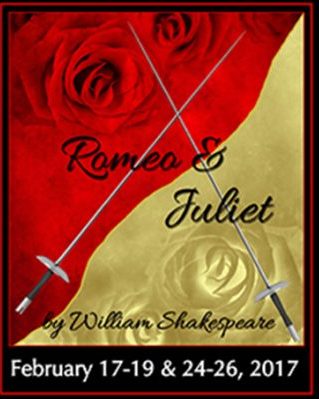DRAMATURGY (part 1): Background

William Shakespeare was born in Stratford-on-Avon, England, in 1564, and died in 1616. He lived during the reigns of Elizabeth I and her successor, James I. He founded a company of players who called themselves the Lord Chamberlain’s Men, and performed in London theaters, notably the Globe. He wrote 38 plays and 154 sonnets, and is widely considered the greatest writer in the English language.
Did he really write all those plays?

Background of Romeo and Juliet
The plot is based on an Italian story translated in verse form as The Tragical History of Romeus and Juliet by Arthur Brooke in 1562, and retold in prose by William Painter in 1567. Shakespeare borrowed heavily from both versions, but expanded the plot by developing several supporting characters, particularly Mercutio and Paris. Romeo and Juliet is believed to have been written between 1591 and 1595, and was first published in 1597. [source: Wikipedia]
Is this the whole script?
Good heavens, no. Uncut, most of Shakespeare’s plays run three and a half to four hours, and this one is no exception. In the Elizabethan era, spending an afternoon at the theater meant the whole afternoon. (Not evening, of course, because the theater relied on natural light. So the term “blackout” was unheard of.)
In cutting Shakespeare for a modern, family-friendly production, there were multiple factors to look for:
1. Is it redundant? (Shakespeare loved to spin out a metaphor, using many layers of imagery and multiple examples. In most cases, I’ve reduced such passages drastically. However, Mercutio’s famous Queen Mab speech and Juliet’s poison speech are largely untouched.)
2. Is it intelligible? No matter how well the actors understand what they are saying, if the words allude to historic, mythic or literary figures unknown today, it seems pointless to include such references.
3. Is it funny? At least one scene with the servants was incomprehensible to us, its humor apparently dated. And it interrupted the momentum in the last half hour of the play.
4. Is it needlessly vulgar? Certainly Shakespeare was writing for a very wide audience–from royalty and nobles to the coarsest of “groundlings”, who willingly stood for the entire production. He included material to appeal to them all. But some of the coarser sexual humor not only doesn’t advance the plot, it is really out of place in our youthful company.

